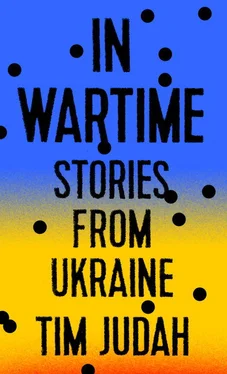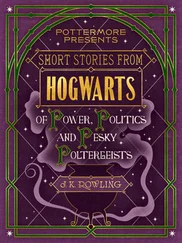His burly colleague Anatoly Zhukov, who is from Mayaki, has been compiling files on what has been happening and sending the information to the president and the prosecutor’s office, but to no avail. “Many people in this region are very corrupt,” he said, and “they have just changed flag and changed party.” In other words, former Yanukovych loyalists have simply jumped ship and now support the new people in power. In Mayaki people were particularly angry because since the town was founded in 1521 its inhabitants had had free access to the riverbank and now those areas had been acquired by a company to build houses for “rich and corrupt” people. Sitting in a dingy café Anatoly began to name local bigwigs, explained their connections to Yanukovych and how they profited from that relationship and how now, being connected to top people in Kiev, they had survived the transition wrought by the Maidan revolution. He singled out a top local official. “He is totally corrupt. He was a Yanukovych man and now he has been promoted. Nothing has happened.”
Anatoly is a skeptic when it comes to Petro Poroshenko, who was elected president in May 2014. “He worked for Yanukovych for too long and now change is happening too slowly.” But he is still a believer. “I was on the Maidan as were two of my sons. One was beaten. He had his head smashed. For my part, it was my rights I was protecting.” Rusev said, “With Yanukovych we had no chance. At least now we have a chance.”
Rusev was born in 1959 in a village near Sasyk. He is an ethnic Bulgarian and his family came to Bessarabia in 1821. Back in the village no one shared his views. “Many of my relatives are waiting for Putin. It is very sad. Bulgarians remember how Russia supported Bulgaria during the Balkan Wars. They believe that with a Russian system it will be better. Most people voted for Yanukovych in my village. It is hard to explain why. They just want to work on their land but they were worked upon,” he said, using an expression popular in the post-Soviet world, “by different political technologies. They believe Putin will solve all their problems and they don’t believe the Ukrainian authorities.”
A few months later, in May 2015, something unexpectedly did change in the Odessa region. Poroshenko appointed Mikheil Saakashvili, the former president of Georgia, to be its governor. A clear enemy of Russia and a man who did much to transform his own country—it remained to be seen if he could change his new domain.
19.
“A patriot of this land”
There are more than a hundred villages and districts in Ukraine unimaginatively named Zhovtnevoe. It means “October” and was one of a selection of names celebrating the October Revolution and other Soviet themes doled out to places across the Soviet Union. Zhovtnevoe in Bessarabia looks pretty much the same as any village-cum-small-town in Ukraine, but it has one peculiarity. It is the Albanian village of Ukraine. In the 2001 census 3,308 people in Ukraine described themselves as Albanian and today about half of the country’s Albanians live here. Many of the rest of the villagers are Bulgarian. The village was founded in 1811, and the ancestors of many of these Albanians came some 200 years ago from Bulgaria, where their ancestors may have already lived since the sixteenth century. The Albanians are all Orthodox. (Most but not all Albanians are Muslim.) When this part of Bessarabia fell under Romanian rule in 1856, some families moved to three more villages close to the Sea of Azov, which flows into the Black Sea, where their descendants remain. Albanians also lived in Odessa, but Zhovtnevoe, whose original name was Karakurt, which means “black wolf” and is still in wide use today, remained a sort of Ukrainian Albanian capital village.
Elena Zhecheva, who had been mayor since 2006, was in the little town hall. She is forty-six years old and has two daughters in their twenties. She sat in the dark, because for two hours a day the electricity was off, as it was across the region since there was not enough coal for power stations because much of it came from the now war-afflicted east. In her office cabinet she has small Albanian and Ukrainian flags and various souvenirs people have brought back from Albania, Kosovo, or Macedonia, including a ceramic tile portrait of Mother Teresa of Calcutta, herself an Albanian born in Skopje. There are some 2,500 villagers according to Elena, of whom 60 percent would say they are Albanian, even if they don’t all speak the language. With every passing year and with intermarriage, she said, it was increasingly hard to tell who is what.
In my family I am Albanian from my mother’s side and Bulgarian from my father. My grandfather spoke Bulgarian to my sister and Albanian to me. My husband knows Russian, Albanian, Bulgarian, Gagauz and Ukrainian, but he is Albanian. However, when we argue we argue in Russian. In school the children are taught in Russian and study Ukrainian, but it is not in daily use. That is not because of some attitude to Ukraine but it is simply not used.
Albanians here are desperate for contact with Albania and Kosovo. The Albanian government says it will help, but for years nothing has happened. Because they speak an old-fashioned Albanian, the modern language is hard, though not impossible, to understand. Behind Elena is the crest of the village with three colored stripes. Red is for the village’s Albanians, green for Bulgarians and blue for Gagauz.
As the gloom gathered the talk moved on to the life of the village in general, and while it may on the one hand be something of an ethnographic peculiarity, on the other it is little different from Ukraine’s hundred or so other Zhovtnevoes. Because of the power cut, it was getting cold and Elena pulled her coat close over her. What she said was stark: “I have bitterness in my soul.” She campaigned to be mayor with the goal of changing things for the better, but with every passing year it became harder and harder. “I don’t want to just exist in this position if I cannot do anything.” Corruption is the problem, she said, here and everywhere in Ukraine. It blocked her and others from being able to do anything to make life better for the village. “I look at my village and the hardworking people here. Ukraine is not such a poor country and we could do well.” The main road is in bad condition and smaller roads are in an even worse state. To the west Bessarabia is bounded by the Danube, but there is no bridge or ferry over it to Romania. The only way out is to cross through Moldova. If the road was good, if Ukraine’s European integration strategy bears fruit, making exports easier, if trucks did not have to waste time at customs to cross a tiny strip of Moldova to access the European Union’s markets, little Zhovtnevoe might have a chance to flourish. Now it has few jobs but lots of farmland and 24,000 pigs and, said Elena, “no one will invest here.” This is a depressed region with no industry. “Maybe some see future prosperity, but I don’t.” Would it not be better if there was a good road out directly to Romania, in which case it would take maybe ninety minutes to get there? She just laughed. She wanted a good road to Odessa first.
In Soviet times the kolkhoz employed 1,000 people. Now only a few hundred work in agriculture. Young people leave. There are eleven shops and one café. Others work in the town hall, the school, the kindergarten and so on. The village is full of pensioners and some stay-at-home mothers, said Elena. “Others go to Odessa and rent an apartment and try to find a life there.” That the village ages and that kids, especially those who get an education, want to leave is nothing specific to Zhovtnevoe or to Ukraine. In these dangerous times people wonder whom to believe and whom to follow if forced to make a choice. But whom to believe? “My opinion is that people just can’t understand what is going on,” she said. They watch Ukrainian and Russian television and try to figure out who is telling the truth. “Many people don’t express their view openly. What they really want is work and to earn money for essential things and to at least live their simple lives. It sounds mercantile. Money is evil, but we cannot live without it.” Now what was happening in Ukraine was a fight for power by two big groups, and many here thought it was “not our fight.”
Читать дальше












